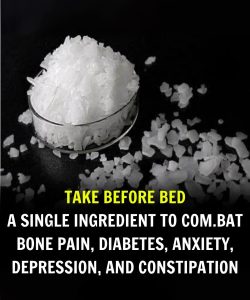
As we grow older, keeping up with essential nutrients shifts from being just a good idea to an everyday priority. One mineral that often doesn’t get enough attention—but plays a crucial role in senior health—is magnesium. It supports everything from strong bones and restful sleep to a healthy heart. So, how can seniors use magnesium effectively? Let’s explore.
Why Magnesium Matters for Seniors
Magnesium is involved in more than 300 important processes in the body. For older adults, it helps with:
-
Building and maintaining strong bones (alongside calcium and vitamin D)
-
Regulating blood pressure and heart rhythm
-
Relaxing muscles and soothing the nervous system
-
Enhancing sleep quality and emotional well-being
-
Managing blood sugar levels
Unfortunately, many people over 60 don’t get enough magnesium. Aging, certain medications (like diuretics or PPIs), and dietary changes can all make it harder to absorb enough of this vital mineral.
How Much Magnesium Do Seniors Need?
According to the National Institutes of Health (NIH):
-
Men 51 and older: 420 mg per day
-
Women 51 and older: 320 mg per day
Your individual needs might differ, especially if you have health conditions—so it’s always best to talk with your healthcare provider.
Best Magnesium-Rich Foods for Seniors
The top way to boost magnesium is through nutrient-packed foods, such as:
-
Leafy greens: spinach, kale, Swiss chard
-
Nuts and seeds: almonds, pumpkin seeds, sunflower seeds
-
Whole grains: brown rice, quinoa, oatmeal
-
Legumes: black beans, lentils, chickpeas
-
Fruits: bananas, avocados
-
Dark chocolate (in moderation!)
Try adding these to smoothies, soups, or grain bowls to help your body absorb them better.
Should Seniors Take Magnesium Supplements?
If your diet doesn’t provide enough magnesium or a blood test shows a deficiency, supplements may be useful. Common types include:
-
Magnesium citrate: well absorbed, can ease mild constipation
-
Magnesium glycinate: gentle on the stomach and calming
-
Magnesium oxide: higher magnesium content per pill but less easily absorbed
Supplement tips:
-
Start with a low dose (100–200 mg daily)
-
Take with food to prevent stomach upset
-
Don’t take magnesium and calcium supplements simultaneously—they compete for absorption
-
Avoid exceeding 350 mg daily from supplements unless directed by your doctor
Signs to Watch For
Low magnesium can cause:
-
Muscle cramps
-
Fatigue
-
Mood swings or irritability
-
Irregular heartbeat
Too much magnesium (usually from supplements) may lead to:
